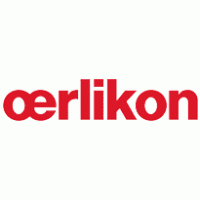Neumünster, Germany, 22. October 2020 – Success is built by connecting the right people with the right product. In a global marketplace, this means collaboration is just as important as competition. Companies need to focus on their strengths, while finding practical ways to innovate and expand upon their capabilities.
In order to do so, working together often makes the most sense. This is what motivated Procter & Gamble and Oerlikon Nonwoven – Teknoweb Materials to agree on an exclusive license agreement to market and sell the Phantom platform worldwide.
The patented process for hybrid nonwovens combines the best of both airlaid and spunmelt technologies to deliver new, flexible ways of creating wet and dry wipes. Phantom technology offers additional benefits by reducing resources and cost, while increasing overall performance. The exclusive license gives Oerlikon Nonwoven – Teknoweb Materials distribute this technology worldwide. In addition, Oerlikon Nonwoven – Teknoweb Materials have further refined the process into their own Levra technology – an entry-level option which offers tailored production volumes with lower investment costs but is still suitable to be upgraded to the premium Phantom model in the future.
Quality products that cost less
Essentially, Phantom technology was developed to produce hybrid substrates. The spunmelt and airlaid processes are merged into one step to combine cellulose fibers, long fibers such as cotton, or even powders with polymer fibers in unprecedented ways. This technology has clear advantages in terms of resources, performance, and cost compared to the previous processes on the market. By removing hydroentanglement, it is no longer necessary to dry the material. Adjusting the process can optimize relevant product characteristics such as softness, strength, dirt absorption, and liquid absorption. In the end, this even increases the quality of the product itself.
The greater freedom for formulating continuous and discrete fibers allows for more flexible and absorbent structures and highly textured materials. Wipes feel softer to the touch while providing more protection for the hands. Up to 90% of the material can consist of pulp fibers, although natural alternatives like cotton or synthetic fibers can be added to the mix.
Phantom technology has not only found a practical application in a variety of wipes – such as hygiene wipes, anti-bacterial wipes, surgical wipes, or industrial wipes – but also in absorbent cores, for instance indiapers or fempro products. With so many applications, Oerlikon Nonwoven – Teknoweb Materials are fully prepared to deliver Procter & Gamble’s innovative Phantom technology to the global nonwovens market.
2,820 characters including spaces
Caption: Phantom technology enables greater freedom for formulating continuous and discrete fibers allows for more flexible and absorbent structures and highly textured materials.

